The volume of the Project of the History of Science, Philosophy and Culture in Indian civilization aim at discovering the main aspects of India’s heritage and present them in an interrelated way. These volumes, in spite of their unitary look, recognize the difference between the areas of material civilization and those of ideational culture. The Project is not being executed by a single group of thinkers who are methodologically uniform or ideologically identical in their commitments. In fact, contributions are made by different scholars with different ideological persuasions and methodological approaches. The Project is marked by what may be called ‘methodological pluralism’. In spite of its primarily historical character, this Project, both in its conceptualization and execution, has been shaped by scholars drawn from different disciplines. It is for the first time that an endeavour of such a unique and comprehensive character has been undertaken to study critically a major world civilization like India. The volume, Women of India: Colonial and Post-Colonial Periods, in six sections viz., Family/Law, Body/Sexuality, Knowledge System, Work, Creativity/Voices, and Politics, offers insights into women’s lives in colonial and post-colonial India, fully cognizant of the complex interlinking of class, caste, ethnicity, religion, nation, state policy and gender. Historically, the period discussed in this study coincides with the end of one era and the beginning of another, with two hundred years of British colonial rule and, following that, fifty years of an independent India. The essays in this volume explore the operation of power and the resistance to it, the space that was denied to the disadvantaged gender-women-and the space they created for themselves, and the history of the mutual roles of women and men in colonial and post-colonial India. Eminent scholars on women’s studies and reputed scientists, drawn from diverse disciplines and located in different parts of India, present themes that are crucial to the understanding and experience to gender in India. In so doing, they add to our historical knowledge and also, it is hoped, partly change our vision of Indian history. Taken as a whole, the essays raise our awareness of overt and hidden discriminations, and restricted options and possibilities for women’s agency, while reminding us of the multiple ways in which women manage to survive and thrive despite familial, community and state neglect.
History of Science, Philosophy and Culture in Indian Civilization: Women of India: Colonial and Post-Colonial Periods (Volume IX, Part 3)
$88.20
$98.00
In stock
Free & Quick Delivery Worldwide
All orders amounting to US$ 50 or more qualify for Free Delivery Worldwide. For orders less than US$ 50, we offer Standard Delivery at $14 per book.
ABOUT THE AUTHOR Bharati Ray
Bharati Ray taught History at Calcutta University and was Pro-Vice-Chancellor there from 1988 to 1995. She was Founder-Director of the Women's Studies Research Centre at the university and is currently Honorary Professor and Member, Peace Research Group, Department of History, Calcutta University, and Editorial Fellow of PHISPC. She is a bilingual author and has numerous books, both authored and edited, to her credit. Some of her Pramountcy (1988); Detecting Disadvantages: A Pilot Study of Scheduled Caste Women in Two Districts of West Bengal (1994_; Early Feminists in Colonial Bengal: Sarala Devi Chaudhurani and Begum Rokeya Sakhawat Hassain (2002); Women's Struggle: A History of the All Indian Women's Conference 1927-1990, jointly authored with Aparna Basu (1990-2002); From the Seams of History: Essays on Women in Colonial India, ed.(1995); From Independence toward Freedom: Indian Women Since 1947. co-ed. (1999); Women and Politics: France, India and Russia, ed. (2000) and Politics and Identity in South Asia, jointly edited with David Taylor (2002). She has also compiled and edited two volumes of articles published in the earliest women's journal in Bengal,Bamabodhini Patrika, 1863-1922. She was a Member of Parliament (Rajya Sabha), 1996-2002, and a member of the Joint Parliamentary Committee on the Empowerment of Women. Married with three children, Bharati Ray is fond of reading, writing, listening to music, watching plays, cooking and travelling. She loves the company of children and is currently President of the Children's Little Theatre, Kolkata.
ABOUT THE AUTHOR D P Chattopadhyaya
D.P. Chattopadhyaya, Professor of Philosophy, jadavpur University, is currently working as Research Scientist of the University Grants Commission. Among his numerous published works are Individuals and Societies(1967), Individuals and Worlds (1976), environment Evolution and Value (1982), Humans Meanings Existences (1983), Sri Aurobindo and Karl Marx (1988). His forthcoming books are Induction Probability and Scepticism and Anthropology and historiography of Science.
reviews
0 in total
Review by Anonymous
History of Science, Philosophy and Culture in Indian Civilization: Women of India: Colonial and Post-Colonial Periods (Volume IX, Part 3)
Be the first to review “History of Science, Philosophy and Culture in Indian Civilization: Women of India: Colonial and Post-Colonial Periods (Volume IX, Part 3)” Cancel reply
You must be logged in to post a review.
Bibliographic information
Title
History of Science, Philosophy and Culture in Indian Civilization: Women of India: Colonial and Post-Colonial Periods (Volume IX, Part 3)
Author
Edition
1st ed.
Publisher
ISBN
8178295563
Length
xlix+623p., Figures; Notes; Figures; 29cm.
Subjects
more by Bharati Ray see more
Women’s Struggle: A History of the All India Women’s Conference 1927-2002
The All India ...
Out of stock
more by D P Chattopadhyaya see more
Architecture in India: History of Science, Philosophy and Culture in Indian Civilization, Volume VI, Part 2
The volumes of the PROJECT ...
$118.80
$132.00
similar bookssee more
Women Entrepreneurs: Opportunities, Performance and Problems
The hidden entrepreneurial ...
$20.90
$22.00
Dalit Struggle for Self Liberation
$40.50
$45.00

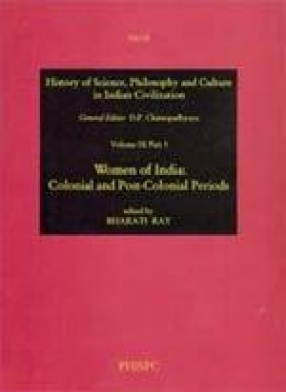
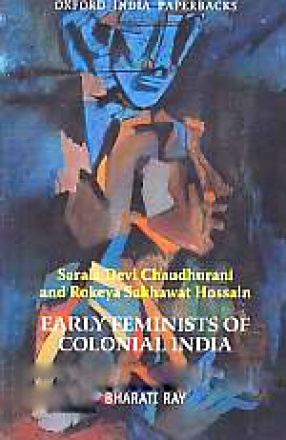
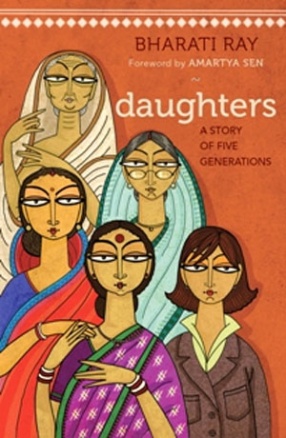
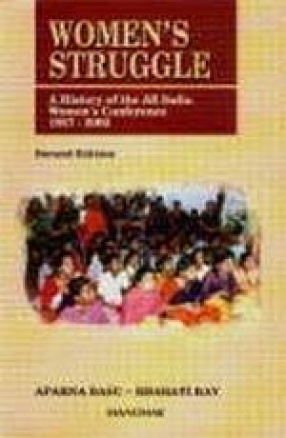
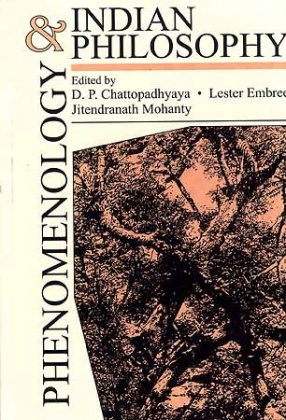
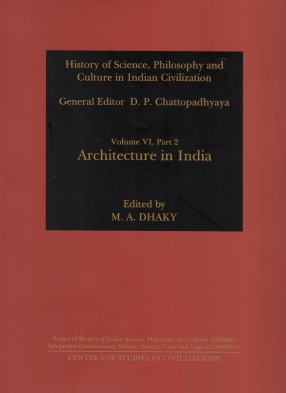
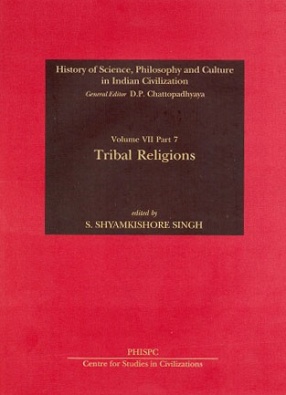


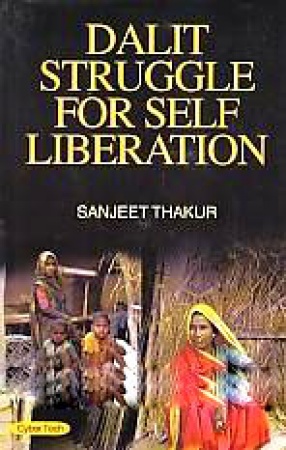
There are no reviews yet.